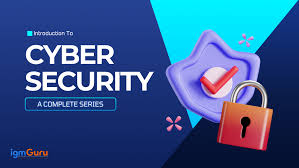Cybersecurity 101: Your Gateway to a Rewarding Career in Protecting the Digital World
116 Views
<6 min read
Last updated Loading...

Best Tosan

Why Cybersecurity Matters
In an age where everything from shopping to national defense relies on connected systems, cybersecurity stands out as a critical field. Cyberattacks are growing more frequent and sophisticated, threatening personal privacy, business operations, and global security.
This article is your first step toward understanding cybersecurity—what it is, why it matters, and how you can launch a rewarding career in this dynamic field. Unlike traditional paths, cybersecurity welcomes people from all backgrounds, blending technical expertise with transferable skills to protect the digital world.
Understanding Cybersecurity: Core Concepts
To fully understand cybersecurity, one must consider its foundational principles, which protect the systems and data we rely on daily.
Cybersecurity is the practice of defending networks, systems, and data from digital attacks aimed at accessing, altering, or destroying sensitive information, disrupting operations, or extorting money. At its core lies the CIA triad:
Confidentiality: Protecting information from unauthorized access.
Integrity: Ensuring data remains accurate and untampered.
Availability: Keeping systems accessible to authorized users.
For instance, consider a financial services firm in 2025. Without confidentiality, customer records could be leaked; if integrity is compromised, financial data might be manipulated; and if availability is disrupted by a DDoS attack, online banking services could grind to a halt.
Dating back to the early days of the internet, security was an afterthought, but as networks expanded, the need for robust defenses became clear. Today, advanced threat detection and AI-powered platforms continue to evolve to meet these challenges.
Why Choose a Cybersecurity Career?
As a direct result of the rise of cloud computing, IoT, and mobile technologies, the attack surface for cyber threats has expanded dramatically, driving demand for skilled professionals.
According to the U.S. Bureau of Labor Statistics, cybersecurity jobs are projected to grow over 30% by 2030—far outpacing most occupations. This growth spans industries like finance, healthcare, government, and education, making cybersecurity a field with universal relevance.
A cybersecurity career offers:
Meaningful Impact: Safeguard individuals and organizations from digital harm.
Lucrative Salaries: Entry-level roles often command competitive pay, with six-figure potential as you specialize.
Flexible Opportunities: Work remotely, freelance, or consult globally.
Rapid Growth: High demand leads to fast promotions and diverse roles.
Take, for example, a Security Operations Center (SOC) analyst who detects a phishing email spoofing a C-suite executive. Their quick action prevents financial loss and reputational damage, showcasing the tangible impact of cybersecurity work.
Unlike traditional IT, cybersecurity offers diverse paths—such as digital forensics or ethical hacking—appealing to logical, creative, and investigative thinkers alike.
Key Roles and Skills in Cybersecurity
For instance, a modern organization storing sensitive data on cloud-based systems relies on various cybersecurity roles to stay secure. Entry-level positions include:
Security Analyst: Monitors systems for suspicious activity and analyzes threats.
SOC Analyst: Manages real-time incident responses within a team.
Information Security Analyst: Develops strategies to protect organizational assets.
Each role contributes to protecting data integrity, ensuring compliance, and maintaining business continuity. To succeed, professionals need a mix of skills:
Transferable Skills
Communication: Explaining threats to technical and non-technical audiences.
Problem-Solving: Identifying system weaknesses and devising countermeasures.
Collaboration: Working across departments to enforce security policies.
Technical Skills
Programming: Python or SQL for scripting and data analysis.
SIEM Tools: Splunk or IBM QRadar for real-time monitoring.
Computer Forensics: Investigating digital evidence post-incident.
Consider a junior analyst using Python to automate detection of suspicious login patterns. Their script speeds up threat detection and reduces errors, demonstrating how technical skills drive efficiency.
While certifications highlight theoretical knowledge, hands-on practice is equally critical for real-world success.
Getting Started in Cybersecurity
To put it simply, breaking into cybersecurity requires a clear plan and practical experience. For instance, certifications are an accessible starting point for beginners, offering credibility and foundational knowledge. Here are some recommended options:
CompTIA Security+: Covers cybersecurity basics, ideal for newcomers. Learn more at CompTIA’s official site.
Google Cybersecurity Certificate: Project-based and beginner-friendly, requiring no tech background, offered through Coursera. Explore the course.
Certified Information Systems Security Professional (CISSP): Suited for those with experience aiming for leadership roles. Visit (ISC)² for details.
Hands-on experience is essential. Platforms like TryHackMe and Hack The Box offer interactive challenges to practice real-world skills, while Cybrary provides free courses and virtual labs for beginners.
Participating in Capture The Flag (CTF) events or bug bounty programs can further sharpen your skills. For free resources, the SANS Institute offers training videos and labs, and OWASP provides open-source security guides.
Joining communities like the TryHackMe Discord or LinkedIn cybersecurity groups can connect you with mentors and peers. In contrast to traditional education, these methods emphasize practical, hands-on learning, preparing you for the dynamic challenges of cybersecurity.
Conclusion: Your Path to a Rewarding Career
In summary, cybersecurity is more than a job—it’s a dynamic, rewarding career filled with purpose and opportunity.
If left unchecked, the rising tide of cyberattacks could compromise everything from personal data to critical infrastructure, making cybersecurity professionals the frontline defenders of our digital world.
Accessible to career-changers, autodidacts, and creatives, this field values curiosity and a willingness to learn. Whether you’re drawn to coding, problem-solving, or protecting others, cybersecurity offers a path to make a difference.
cybersecurity
career
tech jobs
ethical hacking
cybersecurity roles
entry-level IT
Comments ( )
0 Likes
Comment
Categories
Latest Posts
Related Posts
No related posts!
